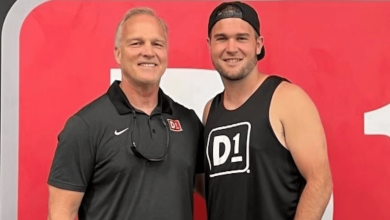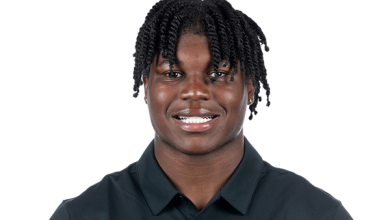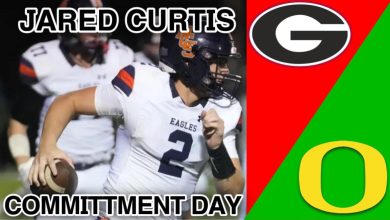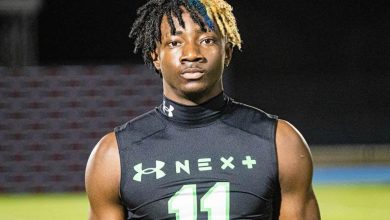Nico Iamaleava missed Tennessee practice amid NIL contract negotiations, raising concerns about his future with the Volunteers program.
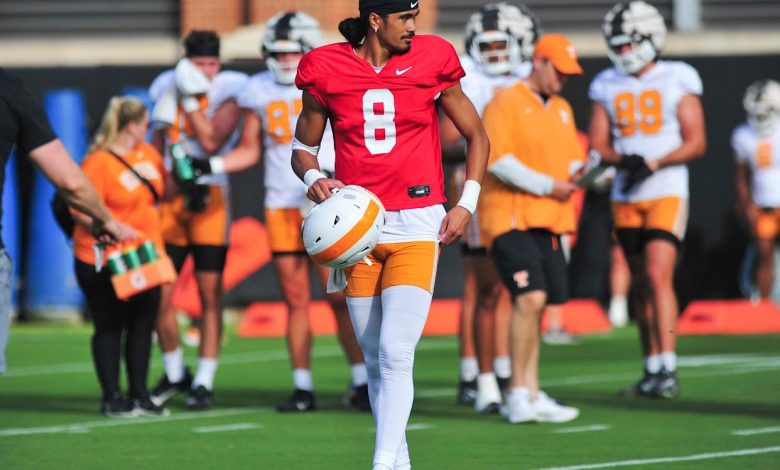
In the world of college athletics, the intersection of talent and business has never been more apparent than it is today with the rise of Name, Image, and Likeness (NIL) deals. These deals have revolutionized college sports, particularly in football, where star players now have the ability to profit off their name and likeness while still in college. For many, NIL has been a game-changer, giving athletes the chance to capitalize on their popularity. However, for some, it has also introduced a level of complexity and controversy into the mix. One of the most high-profile cases in college football in 2025 involves Tennessee Volunteers quarterback Nico Iamaleava, who recently missed practice amid ongoing contract negotiations related to his NIL deal. His absence has raised questions not only about his immediate future at Tennessee but also about the larger implications of NIL deals on college sports.
Nico Iamaleava: A Star in the Making
Nico Iamaleava’s rise to prominence in college football has been meteoric. A highly touted recruit out of Long Beach, California, Iamaleava committed to Tennessee in 2023, quickly becoming one of the most coveted quarterbacks in the country. Known for his strong arm, athleticism, and impressive physical traits, Iamaleava has all the makings of an NFL-caliber quarterback. By his sophomore season in 2025, he had already proven himself as one of the most promising young quarterbacks in college football.
In his sophomore year, Iamaleava threw for 2,616 yards, 19 touchdowns, and just five interceptions. His performance was solid but not without criticism, particularly after a subpar showing in Tennessee’s College Football Playoff loss to Ohio State. Despite this, he remained a key player for the Volunteers and had high expectations for his junior season. However, the dynamic surrounding his NIL contract has become an issue that could significantly affect both his future at Tennessee and his career in college football.
The Power of NIL in College Football
Since the NCAA’s decision to allow athletes to profit from their NIL rights in 2021, the landscape of college athletics has changed dramatically. For athletes like Iamaleava, NIL has provided an avenue for financial gain that was previously unavailable. The Tennessee quarterback, whose popularity has soared thanks to his on-field performances and charismatic persona, is one of the highest-earning athletes in college football. As of 2025, his NIL valuation is reportedly around $3.1 million, which puts him in the elite category of college athletes.
NIL deals have opened up a host of opportunities for athletes to make money through sponsorships, social media partnerships, merchandise sales, and more. However, as is often the case with new and rapidly evolving systems, NIL has introduced a range of complications. As the stakes have gotten higher, so too have the expectations, and these expectations can sometimes create tension between athletes, schools, and their respective NIL partners.
The Absence from Practice: A Signal of Trouble?
On April 11, 2025, Iamaleava missed practice for Tennessee, a move that immediately raised eyebrows among fans, coaches, and analysts alike. While the timing of his absence coincided with the spring transfer portal window opening, many suspected that the real reason for his absence was related to contract negotiations regarding his NIL deal. These negotiations are reportedly centered around Iamaleava’s desire for an increase in his NIL earnings. According to some reports, Iamaleava and his representatives are seeking a better deal, given his performance and growing marketability.
This development was a significant moment in college football, as it marked one of the first times a high-profile player has held out due to NIL contract disputes. Iamaleava’s absence raised serious questions about his commitment to the Volunteers program and his long-term future at Tennessee. Some speculated that he might be considering a move to another school or, more intriguingly, entering the transfer portal to secure a potentially more lucrative NIL deal at a different program.
Adding fuel to the fire, it was reported that Iamaleava’s father, Nic Iamaleava, was involved in these negotiations, with some reports suggesting that he was advocating for a higher financial offer. However, in a statement, Nic Iamaleava denied any direct involvement in his son’s NIL discussions, further complicating the situation and raising doubts about the full extent of the negotiations.
A Shift in the College Football Landscape
While Iamaleava’s situation is currently a high-profile case, it is not an isolated one. NIL deals have increasingly become a focal point of college football, with athletes and their families demanding higher financial compensation. This trend is part of a larger shift in the dynamics of college athletics, as players now have more power and leverage than ever before.
The NCAA’s decision to allow athletes to profit from their NIL rights has undoubtedly benefited many student-athletes, particularly those in high-profile sports like football and basketball. However, it has also led to some unintended consequences. One of the biggest challenges that schools face is balancing the interests of their players with the financial realities of running a competitive program. While schools may be willing to support their athletes through NIL deals, they are not always in a position to compete with the financial offers that top-tier programs can provide.
As a result, programs like Tennessee, which have strong football traditions but are not traditionally known for offering the kind of NIL money that schools like Alabama or Texas might be able to, may find themselves at a disadvantage in the recruitment and retention of top talent. This situation is further complicated by the rise of “NIL collectives,” which are third-party organizations that pool resources from donors to offer players financial incentives.
For Iamaleava, his absence from practice is a clear indication that NIL deals are no longer just a bonus for top athletes—they are a central part of the conversation surrounding college football recruitment and team dynamics. The increasing influence of NIL deals in college football has led to a growing divide between the business side of college athletics and the traditional notion of amateurism.
The Impact on Tennessee and Head Coach Josh Heupel
Tennessee, as a program, has worked hard to build a competitive football team under the leadership of head coach Josh Heupel. Since taking over the program, Heupel has turned Tennessee into one of the top teams in the Southeastern Conference (SEC), with Iamaleava playing a pivotal role in that success. However, the recent developments surrounding Iamaleava’s absence raise important questions about how NIL negotiations could affect team chemistry and overall performance.
While Tennessee is undoubtedly one of the more successful programs in the SEC, it may not have the same NIL resources that other schools with deeper pockets can provide. As a result, the Vols could find themselves in a difficult position if they are unable to meet Iamaleava’s demands. The decision to miss practice, especially at this stage in the offseason, is a bold statement that suggests Iamaleava’s commitment to the program may be waning.
As of now, Tennessee head coach Josh Heupel has not publicly addressed the situation or commented on Iamaleava’s absence. However, the pressure on Heupel and the Tennessee athletic department is mounting. They must balance the interests of their star player with the needs of the team. It remains to be seen whether Iamaleava will return to practice and, if so, under what conditions. Will the Vols be able to negotiate a new NIL deal that satisfies their star quarterback, or will Iamaleava seek to explore other opportunities?
What’s Next for Nico Iamaleava?
For Iamaleava, the next few months could prove to be a pivotal point in his career. The transfer portal opens on April 16, 2025, and with it, a window for athletes like Iamaleava to explore opportunities at other programs. If Iamaleava does enter the portal, he would undoubtedly be one of the most coveted players in college football, with schools around the country eager to make him a central part of their offense.
However, this decision will not be taken lightly. Moving to another program, especially one that may offer more lucrative NIL opportunities, would come with risks. Iamaleava would be leaving behind a strong, established program at Tennessee, and his decision could have long-term implications for his future career in football.
If Iamaleava stays at Tennessee, it will require both sides—player and program—to find common ground. His future in college football may depend on the evolving NIL landscape and how willing Tennessee is to invest in his growth and success.
The Future of NIL and College Football
Nico Iamaleava’s situation is emblematic of the rapidly changing nature of college football. The impact of NIL deals on recruitment, player retention, and team dynamics is profound, and as the landscape evolves, we are likely to see more high-profile cases like Iamaleava’s. While NIL deals have created significant opportunities for athletes, they have also introduced new challenges that must be navigated carefully.
As for Iamaleava, his next move will be one of the most closely watched stories in college football. Whether he stays at Tennessee or moves on to a new program, his decision will have significant implications for both his career and the future of NIL in college sports.



